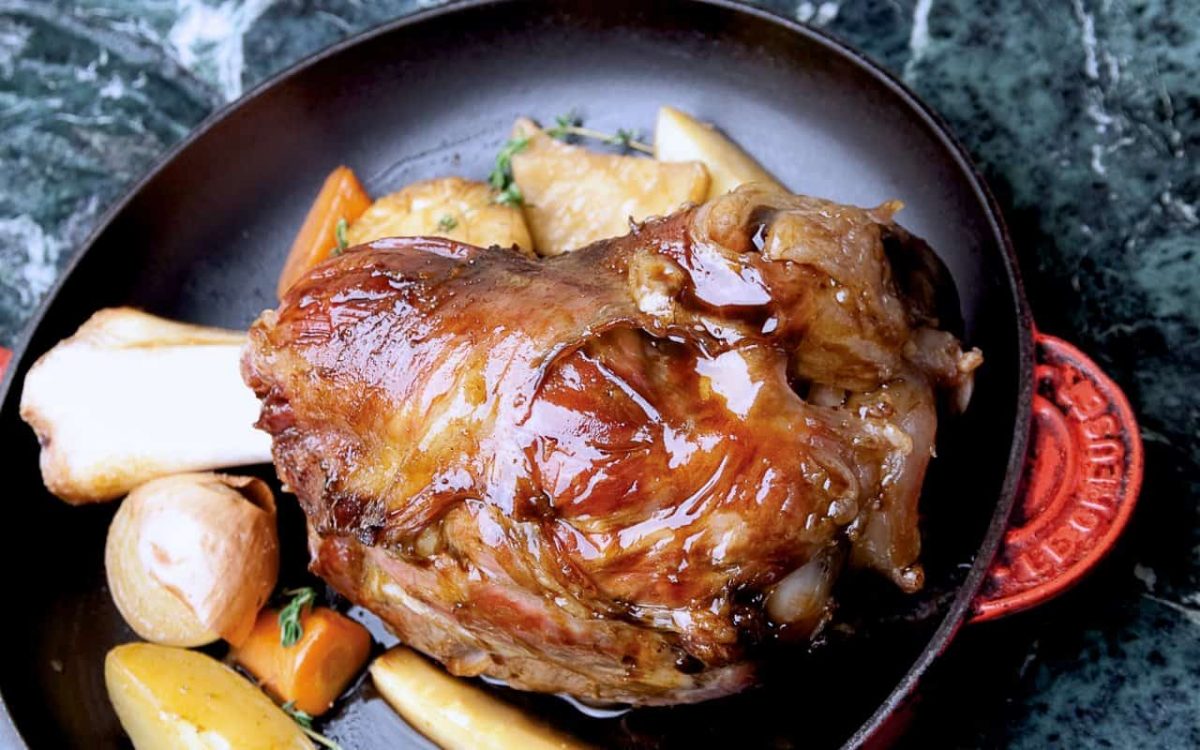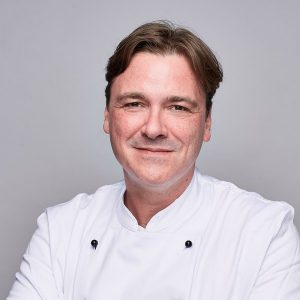Cooking Times for Meat – Professional Cooking Table for the most important Pieces of Meat

Author:
Thomas Sixt is a chef, food photographer, cookbook author and blogger.
Here he shares recipes, answers cooking questions and helps with cooking.
Cooking Time Meat Loaf 1 kg
Circulating air stove: 190 degrees Celsius 50-70 minutes Electric cooker: Top and bottom heat 200 degrees Celsius 50-60 minutes Gas stove: Like electric cooker Top and bottom heatTip: Depending on the shape of the meat loaf, the cooking time varies – a thick meat loaf takes longer.
Cooking Time Beef Fillet 1 kg
Circulating air stove:Start approximately for 10 minutes 210 degrees Celsius, then 170 degrees Celsius 10-15 minutesElectric cooker:Start for about 10 minutes 250 degrees Celsius top and bottom heat, then 200 degrees Celsius 15-20 minutes.Gas stove:Like electric cooker top and bottom heatTip: If you prepare an end piece (fillet tip) of the fillet, the cooking time varies – thin pieces of meat are ready faster. Fillet of beef should first be roasted from all sides in the oven before cooking.
Cooking Time Roast Beef 1 kg
Circulating air stove:Start approximately for 10 minutes 230 degrees Celsius, then 200 degrees Celsius 10-15 minutesElectric cooker:Start for about 10 minutes 250 degrees Celsius top and bottom heat, then 200 degrees Celsius 15-20 minutes.Gas stove:Like electric cooker top and bottom heatTip: Depending on the size of the roast beef, the cooking time varies considerably, see the core temperature information below.
Cooking Time Beef Breast 1 kg
Circulating air stove:190 degrees Celsius 38-58 minutesElectric cooker:Top and bottom heat 210 degrees Celsius 40-55 minutesGas stove:Like electric cooker Top and bottom heatTip: It is essential to let the beef breast rest for a short time, i.e. switch off the oven and only cut open and serve the beef breast after about 10 minutes of rest.
Cooking Time Veal Breast 1 kg
Circulating air stove:190 degrees Celsius 80- 100 minutesElectric cooker:Top and bottom heat 200 degrees Celsius 80- 120 minutesGas stove:Like electric cooker Top and bottom heatTip: The stuffed veal breast must be cooked over high heat until crispy before serving. The best way to cut veal breast is with an electric knife.
Cooking Time Kidney roast Veal 1 kg
Circulating air stove:180 degrees Celsius 80-100 minutesElectric cooker:Top and bottom heat 210 degrees Celsius 80-90 minutesGas stove:Like electric cooker Top and bottom heatTip: The roast kidney of veal becomes particularly juicy when it is first cooked with the lid on. After about half the cooking time the lid is removed and the roast can be crispy and juicy.
Cooking Time Veal Nut 1 kg
Circulating air stove:165 degrees Celsius 70-80 minutesElectric cooker:Top and bottom heat 200 degrees Celsius 80-90 minutesGas stove:Like electric cooker Top and bottom heatTip: The calf nut is particularly lean and can be wrapped in bacon slices. The veal nut should be sprinkled with the gravy more often than other pieces of roast meat. It is recommended to leave the veal breast sliced in the sauce for 5-10 minutes before serving.
Cooking Time Veal Shoulder 1 kg
Circulating air stove:175 degrees Celsius 75-85 minutesElectric cooker:Top and bottom heat 190 degrees Celsius 80-90 minutesGas stove:Like electric cooker Top and bottom heatTip: The shoulder of veal is a particularly juicy roast and can also be heated several times.
Cooking Time Veal Shank front: 0.8 – 1 kg and veal shank back: 1.2 – 1.7 kg
Circulating air stove:Front veal shank 200 degrees Celsius 70- 80 minutes Rear knuckle of veal 180 degrees Celsius 90- 110 minutesElectric cooker:Top and bottom heat 210 degrees Celsius 40-55 minutes Front knuckle of veal 210 degrees Celsius 75- 85 minutes Rear knuckle of veal 200 degrees Celsius 90- 110 minutesGas stove:Like electric cooker Top and bottom heatTip: The knuckle of veal must be served crispy fried, possibly shortly before serving under the grill crispy cook.
Cooking Time Pork Knuckle Rear Knuckle approx. 1 kg
Circulating air stove:Start about 175 degrees Celsius 50-60 minutes then 10 minutes 220 degrees CelsiusElectric cooker:Start top and bottom heat 190 degrees Celsius 55-65 minutes – then 220 degrees Celsius for about 15 minutes.Gas stove:Like electric cooker top and bottom heatTip: The knuckle of pork is a particularly juicy and fatty roast piece and should be served properly crispy.
Cooking Time Roast Pork 1 kg
Circulating air stove:210 degrees Celsius 15-20 minutes – then 160 degrees Celsius 50-65 minutesElectric cooker:Top and bottom heat 220 degrees Celsius 15- 20 minutes – then 170 degrees 60 minutesGas stove:Like electric cooker Top and bottom heatTip: Do not buy roast pork in the net because the net cannot be easily removed. It is better to tie a roast pork roll with thread – this can be easily removed and the crust is preserved.
Cooking Time filled Lamb Breast 1 kg
Circulating air stove:190 degrees Celsius 80- 100 minutesElectric cooker:Top and bottom heat 210 degrees Celsius 90- 100 minutesGas stove:Like electric cooker Top and bottom heatTip: The lamb breast must always be roasted well and served on warm plates.
Cooking Time Lamb Leg 1 kg
Circulating air stove:190 degrees Celsius 45- 55 minutesElectric cooker:Top and bottom heat 200 degrees Celsius 55- 65 minutesGas stove:Like electric cooker Top and bottom heatTip: The leg of lamb should be turned several times during cooking.
Cooking Time Lamb Back in total 1 kg
Circulating air stove:190 degrees Celsius 30- 45 minutesElectric cooker:Top and bottom heat 210 degrees Celsius 35- 45 minutesGas stove:Like electric cooker Top and bottom heatTip: Before frying, remove excess fat that is not tasty.
